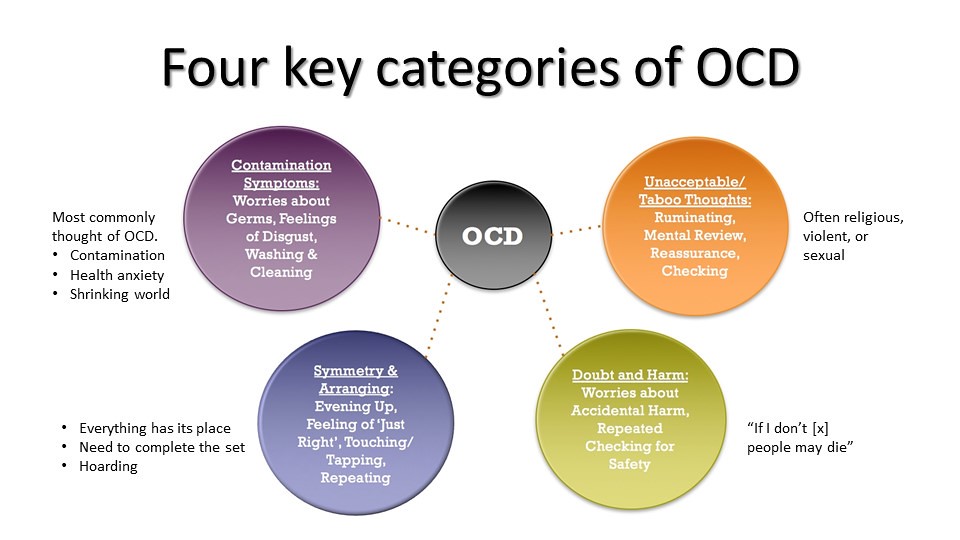
OCD and Intrusive thoughts.
Obsessive compulsive disorder (OCD) is a common mental health condition where a person has obsessive thoughts and compulsive behaviours
The official description is:
An obsession is an unwanted and unpleasant thought, image or urge that repeatedly enters your mind, causing feelings of anxiety, disgust or unease.
A compulsion is a repetitive behaviour or mental act that you feel you need to do to temporarily relieve the unpleasant feelings brought on by the obsessive thought.
OCD misunderstood
People often think of OCD as only excessive washing your hands, checking the door is locked, or not stepping on cracks etc. but those are just tiny examples of a larger field. The main issue is how the intrusive thoughts cause often damaging compulsive behaviours due to increasing anxiety. This is often followed by anger, frustration and even guilt.
Here are some examples of types of OCD
- Cleaning – contamination
- Health anxiety
- Somatic OCD
- Arranging / counting OCD
- Organisation OCD
- Completion OCD
Hoarding – sentimental / deprived - Body dysmorphic disorder
- Worry / harm OCD
- Violence OCD
- Religious OCD
- POCD - paedophile OCD
- HOCD – Homosexual or gay OCD
- Promiscuity OCD

OCD traps
- All the strategies you use (e.g. checking, seeking reassurance, washing, avoidance) don’t work, because your anxiety only goes down for a short time and comes back again.
2. Using these strategies also does not give you a chance to find out whether the meaning or interpretation you gave to the obsessions was really correct.
3. These strategies produce the opposite effect you wish to achieve. That is, even though you hoped these strategies would help you to control the obsessions, they often make you think about the obsessions even more!

Why our approach really works
Talking about your OCD doesn’t make it go away as it is a cyclic thinking pattern and talking doesn’t break the loop.
All the latest research shows that Exposure and Response Prevention therapy (ERP), which is a type of CBT, supported by mindfulness and hypnotherapy are much more effective.
In our experience, overcoming OCD takes on average 3 to 6 sessions.Contact us to discuss and book your first session
To discuss how OCD and intrusive thoughts are affecting you and how we can help, please call Mark on 0121 251 6172 or email via our contact page.
- All the strategies you use (e.g. checking, seeking reassurance, washing, avoidance) don’t work, because your anxiety only goes down for a short time and comes back again.